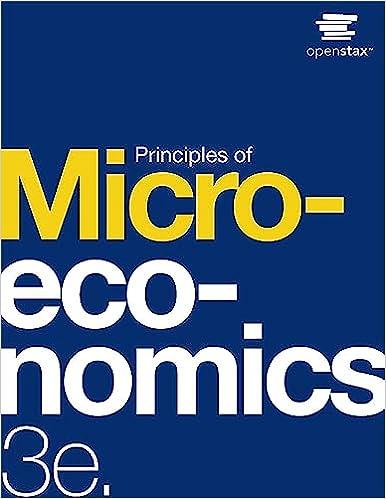Question
1. A government spending and taxation policy to achieve macroeconomic goals of full employment without inflation is known as: a. countercyclical policy. b. fiscal policy.
1. A government spending and taxation policy to achieve macroeconomic goals of full employment without inflation is known as:
a. countercyclical policy.
b. fiscal policy.
c. monetary policy.
d. a balanced budget.
e. presidential discretion.
2. An increase in government spending will have the greatest expansionary impact on the economy if it is combined with:
a. an increase in tax revenue.
b. a tax cut.
c. unchanged tax revenue.
d. a decrease in money supply.
3. If the marginal propensity to consume (MPC) is 0.96, the value of the spending multiplier is:
a. 25.
b. 40.
c. 96.
d. 100.
4. If the spending multiplier is equal to 5, then a $1 initial increase in investment spending will lead to a:
a. 5 percent decrease in real GDP.
b. 5 percent increase in real GDP.
c. $5 decrease in real GDP.
d. $5 increase in real GDP.
e. 0.05 percent increase in real GDP.
5. Which of the following would be an appropriate discretionary fiscal policy to use when the economy is in a recession?
a. Increased government spending.
b. Higher taxes.
c. A balanced-budget reduction in both spending and taxes.
d. An expansion in the money supply.
6. Assume we are in a recession and real GDP is below full employment. The marginal propensity to consume (MPC) is 0.90, and the government has determined that an increase of $1,000 billion in aggregate demand (total spending) can restore full employment. The government should:
a. increase spending by $100 billion.
b. decrease spending by $790 billion.
c. increase spending by $1,000 billion.
d. increase spending by $250 billion.
7. If no fiscal policy changes are implemented, suppose the aggregate demand curve will exceed the current aggregate demand curve by $900 billion at any level of prices. Assuming the marginal propensity to consume is 0.90, this increase in aggregate demand could be prevented by:
a. increasing government spending by $500 billion.
b. increasing government spending by $140 billion.
c. decreasing taxes by $40 billion.
d. increasing taxes by $100 billion.
8. Assume the marginal propensity to consume (MPC) is 0.75 and the government cuts taxes by $250 billion. The aggregate demand curve will shift to the:
a. right by approximately $1,000 billion.
b. right by approximately $750 billion.
c. left by approximately $1,000 billion.
d. left by approximately $750 billion.
9. If the MPC is 0.75, the tax multiplier equals:
a. -4
b. -3
c. 0.33
d. 3
e. 4
10. Which of the following is the best example of an automatic stabilizer?
a. Welfare payments
b. Foreign aid
c. Defense spending
d. Highway construction
11. "He who pays a tax should receive the benefit from the expenditure financed by the tax." This statement reflects which of the following principles for a tax?
a. Fairness of contribution
b. Ability-to-pay
c. Benefits-received
d. Inexperience-to-collect
12. If Congress fails to pass a budget before the fiscal year starts, then federal agencies may continue to operate only if Congress has passed a:
a. Balanced budget amendment
b. Deficit reduction plan
c. Tax increase
d. Continuing resolution
13. The national debt is unlikely to cause national bankruptcy because the federal government can:
a. raise taxes.
b. print money.
c. refinance its debt.
d. All of the above.
14. The statement that Computech's profits totaled $500 million last year represents the use of money as a:
a. medium of exchange.
b. store of value.
c. unit of account.
d. coincident exchange.
15. If every person is willing to accept money in payment, rather than goods and services, money serves as a:
a. medium of exchange.
b. store of value.
c. unit of account.
d. coincident exchange.
Step by Step Solution
There are 3 Steps involved in it
Step: 1

Get Instant Access to Expert-Tailored Solutions
See step-by-step solutions with expert insights and AI powered tools for academic success
Step: 2

Step: 3

Ace Your Homework with AI
Get the answers you need in no time with our AI-driven, step-by-step assistance
Get Started


